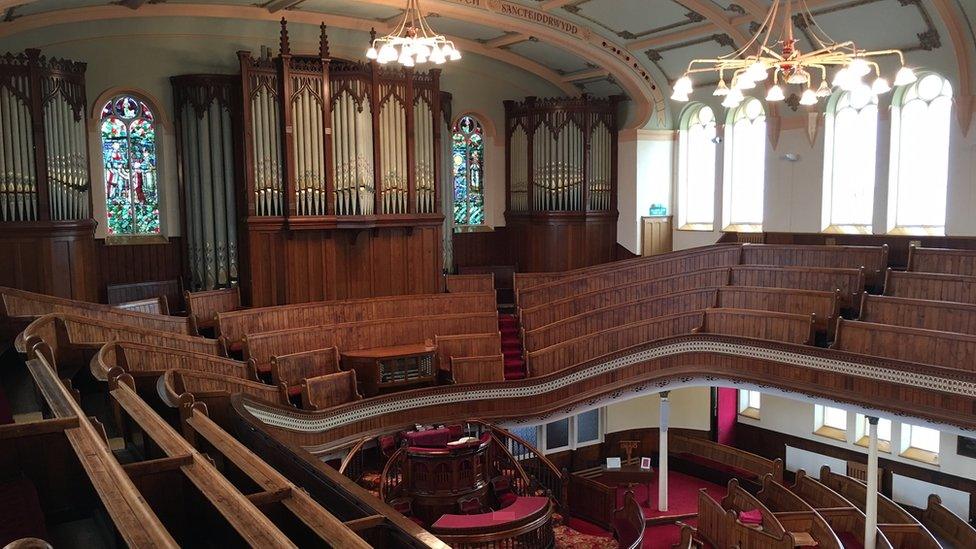Religious sites could boost tourism, Labour AM says
- Published

Promoting places of worship and sacred sites to tourists could boost the Welsh economy, a Labour AM has said.
Mike Hedges said Wales had a "rich and hugely influential" religious heritage.
While Wales was known as the "land of castles", it had many more chapels, churches and religious buildings, the Swansea East AM added.
The Welsh Government said its would promote "this significant part of our heritage" to visitors and locals.
Mr Hedges, a regular chapel-goer, said it was "amazing" how many people visit the former Ebenezer chapel in Swansea because of its connections with - one of Wales' greatest preachers.
Christmas Evans died in Swansea in 1838.
"[They do so] despite the fact it's not advertised, and you have to engage in substantial research to find out where it is, what it is now and arrange to visit."
Mike Hedges says the Tabernacle in Morriston is famed from Singapore to the USA
He also gave the example of the , Swansea - "a beautiful building, once described as the cathedral of non-conformity" - which has connections to the Welsh hymns Blaenwern and Calon Lan.
"If the American tourist market was made aware of this, and the other wonderful Welsh religious sites, I'm sure many people would want to visit and, in doing so, spend their money in local businesses," Mr Hedges said.
"I think there's a huge opportunity to promote tourism relating to our chapels, churches and the great preachers and hymn writers of the past.
"This is an opportunity that we in Wales need to take."
Ken Skates (centre) has previously launched a drive to save churches from disrepair
Economy Secretary Ken Skates said: "With more than 600,000 people visiting Wales' religious sites each year, and year-on-year growth in visitor numbers recorded across , Wales is rightly proud of its iconic ecclesiastical heritage.
"From Tintern Abbey to in Llandaff Cathedral, our historic environment is a constant reminder of Wales' developing culture over the centuries, with our places of worship telling all kinds of stories about the country, its people and its diverse and fascinating religious history.
"Of course, Wales' religious sites also represent a spirituality and place of sanctuary for many."
Mr Hedges said the religious sites and institutions could also benefit financially from more visitors with many of them struggling with running costs.
- Published17 December 2015
- Published25 October 2013
- Published10 June 2012